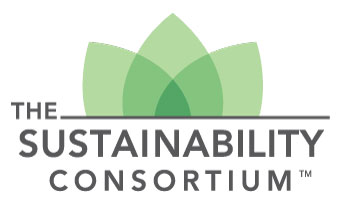Food, Beverage & Agriculture Sector Looks Forward to 2013
ARIZONA, USA, – December 10th, 2012 – The Food, Beverage, and Agriculture Sector (FBA), TSC’s first and largest sector, is excited to begin setting goals for 2013. With over 70 participant organizations, FBA owns nearly 45% of the product categories covered by The Sustainability Consortium’s Sustainability Measurement and Reporting System (SMRS) in 2012.
Thus far in 2012, FBA has delivered Category Sustainability Profiles (CSP) and Key Performance Indicators (KPI) in beef, beer, bread, cotton, grains, milk, packaged cereal, wine, and farmed salmon. The sector most recently developed CSP’s and KPI’s for nuts, beans, seed oils, butter, cheese, lettuce, tomatoes, potatoes, cucumbers, sugar, corn syrup, sorghum, tea, and coffee. In addition, the sector has developed prototype baseline models and product category rules for orange juice, strawberry yogurt, and wheat cereal. “The FBA sector has made huge progress in 2012 with the support of our stakeholders from many different industries and stakeholder groups,” says Dr. Sarah Lewis, Working Group Director. “We are excited to move into 2013 and continue to deliver quality science-based Knowledge Products to our members.”
In 2013, FBA will continue to develop CSP’s and KPI’s with early emphasis in seafood, fruit, chocolate, and poultry. The sector will also continue to look for ways to further quantify the SMRS and facilitate the integration of the SMRS into business practices. Innovation workshops to identify solutions for addressing supply chains will also be integrated into FBA face-to-face meetings and Member Summit meetings. BASF, a long time member and participant of the FBA sector has already begin integrating The Consortium’s knowledge products into their business “The category sustainability profiles created by TSC are very important to our process. They allow us to gather information from different industries and stakeholders to identify hotspots along the entire value chain and develop the best solutions to address the issues,” mentioned Cristian Barcan, Regional Head SET for Applied Sustainability for Americas & Asia/Pacific at BASF. For more information on the FBA sector, please visit: https://www.impact.sustainabilityconsortium.org/food-beverage-agriculture/
The existing sectors in The Consortium will be joined by the Clothing, Footwear, and Textiles sector that is being launched in February at the University of Arkansas. For more information on how to be involved in this meeting and membership with The Sustainability Consortium, please contact Greg Lewis.
About The Sustainability Consortium
The Sustainability Consortium is an independent organization of diverse global participants that work collaboratively to build a scientific foundation that drives innovation to improve consumer product sustainability. The Consortium develops transparent methodologies, tools, and strategies to drive a new generation of products and supply networks that address environmental, social, and economic imperatives. The Sustainability Consortium advocates for a credible, scalable, and transparent process and system. The organization boasts over 90 members from all corners of business employing over 57 million people and whose combined revenues total over $1.5 trillion. Arizona State University and the University of Arkansas jointly administer The Sustainability Consortium, with additional operations at Wageningen University & Research Center in The Netherlands. Learn more at www.sustainabilityconsortium.org
Media Contact:
Elizabeth Kessler, Marketing Coordinator
The Sustainability Consortium
Arizona State University
Elizabeth.Kessler.1@asu.edu | 480.965.3810


